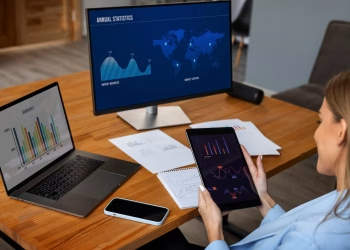The Cheeky Panda is a UK-based start-up producing ultra-sustainable, low-carbon, bamboo tissue products. It has successfully reached and even exceeded the amount of funds it sought on crowdfunding platform Seedrs. The idea behind this start-up, founded by Chris Forbes and his wife Julie Chen, is to use bamboo to innovative tissue products – among its various beneficial qualities, bamboo is more sustainable and grows more rapidly than other plants or trees, thus making our inevitable use of tissue products significantly less damaging to the planet. The use of bamboo for supplies for which we would normally use other trees and plants would significantly reduce the deforestation process that plagues much of our planet, as well as reduce the effects of this process on climate change. Co-founders Chris and Julie are true pioneers, and it was a privilege to speak with Chris for today’s interview.
We at Impakter are always curious to find out how people came upon their innovative ideas. How did this business get started for you? Do you have any specific background in this field?
Chris Forbes: My missus and partner Julie is Chinese; she had been talking with me about the potential for bamboo for about a year. I said to her that I needed to get my eyes on it, to look at it, to investigate the supply chain, and to investigate the ethical deductions behind it. Because if we are going to create a green business, there’s no point in creating one if the back-end isn’t green.
We went on a holiday to China to see her parents and in the middle of the holiday she took me up to the mountains to see a factory and look at bamboo. And I was amazed by what we found; not only it did grow at extreme scale, with just thousands of miles of bamboo, but the factories that they were using to convert it were all modern factories. They even recycle the steam from the pulping process to power the plants. I got the chance to meet the owner, who was 40 years old and built the business from scratch; we had an immediate connection. So when we came back from holiday, we founded the business.

IN THE PHOTO: CHRIS FORBES AND JULIE CHEN WITH THE CHEEKY PANDA PRODUCTS PHOTO CREDIT: THE CHEEKY PANDA
Can you briefly explain to us some of the benefits of using bamboo?
CF: There are almost too many benefits to go into, so we focus on the free benefits. The free benefits are: it is ultra-sustainable, with bamboo growing up to a meter a day; it is low-carbon, so it has 65% less carbon than traditional tissues; and finally, it is really healthy with all bamboo being naturally antimicrobial. In all regular tissues, there is an element of recycled tissue, and the recycled tissue has to use a lot of chemicals to make it, so it is incredibly healthy.
Are you already selling your products? Are you getting good feedback from customers?
CF: We started selling on Amazon in August last year; we are a Best Seller in our category, and we are being sold throughout Europe. We have over a hundred reviews in less than a year, and the large majority of them are 5-star reviews.

IN THE PHOTO: A BAMBOO FOREST PHOTO CREDIT: RAY IN MANILA
Do you have other ideas related to bamboo and/or are you interested in producing other products?
CF: What we are going to do is do all things bamboo. Today ( 2 August ) is Earth Overshoot Day. This means that from today, humans have used all the resources that the planet can provide for an entire year, and from now until the end of the year, it would require 1.7 earths to fill demand. Bamboo is the only plant on the planet that can keep up with human consumption. We shouldn’t keep cutting down trees; we need to be using bamboo.
Is there a specific reason why bamboo has not been used as an alternative before?
CF: The big corporations are very vertically integrated into their current supply chains, so there is a lot of risk for them. If all of a sudden 10% of their customers wanted bamboo products, it would have deep impacts and affect their profits.
Do you think the production of bamboo would be beneficial to developing countries as well?
CF: Of course. I was at Kew Gardens which is part of the National Association of Bamboo which comprises many scientists. We were looking at the socioeconomic and political benefits of bamboo as a cash crop. It grows in very hard conditions, and it does not require much water. We have seen instances in places like India where the land has been destroyed; they replanted bamboo and the land came back. Bamboo produces 35% more oxygen and absorbs 30% more carbon than trees. If bamboo used at scale is used well, we can reverse global warming.
Is there a specific climate condition more favorable to bamboo?
CF: It grows everywhere. It grows in Italy, and even in the UK – though perhaps not as fast as on the Equator where there are higher temperatures. But we’re seeing significant bamboo growth around the world – in Texas, South America, Jamaica, India, China, Indonesia, Thailand. If we want to turn the world around we should really be using bamboo products.
Should we all be using bamboo in the future?
CF: I welcome and I want more bamboo businesses in the world. I want more people to start using bamboo; it will give the future generations a much better world. We consider ourselves green pioneers, and we want to inspire others and show that high-quality, green, sustainable products can be created and that you can even make money out of it.










